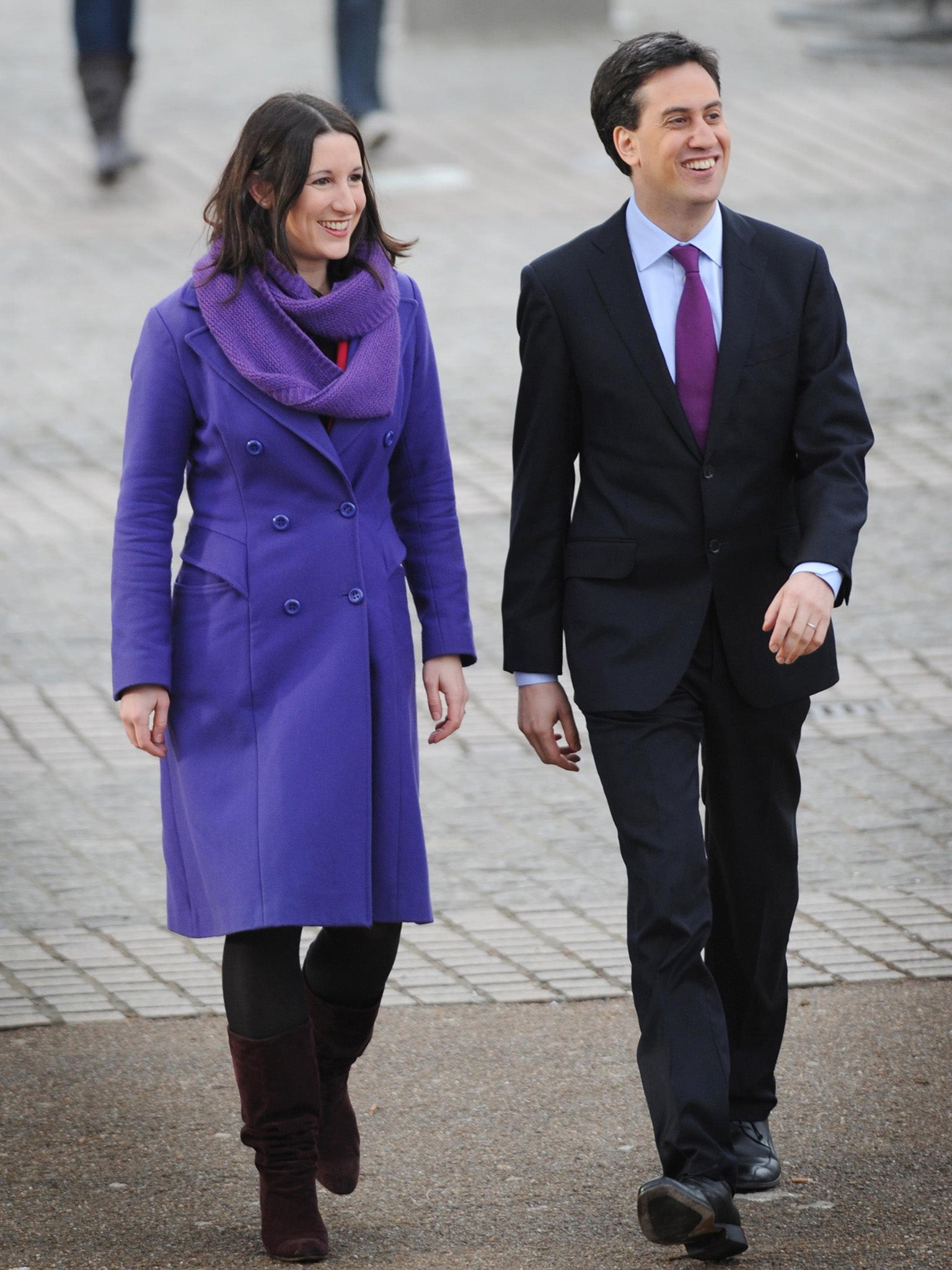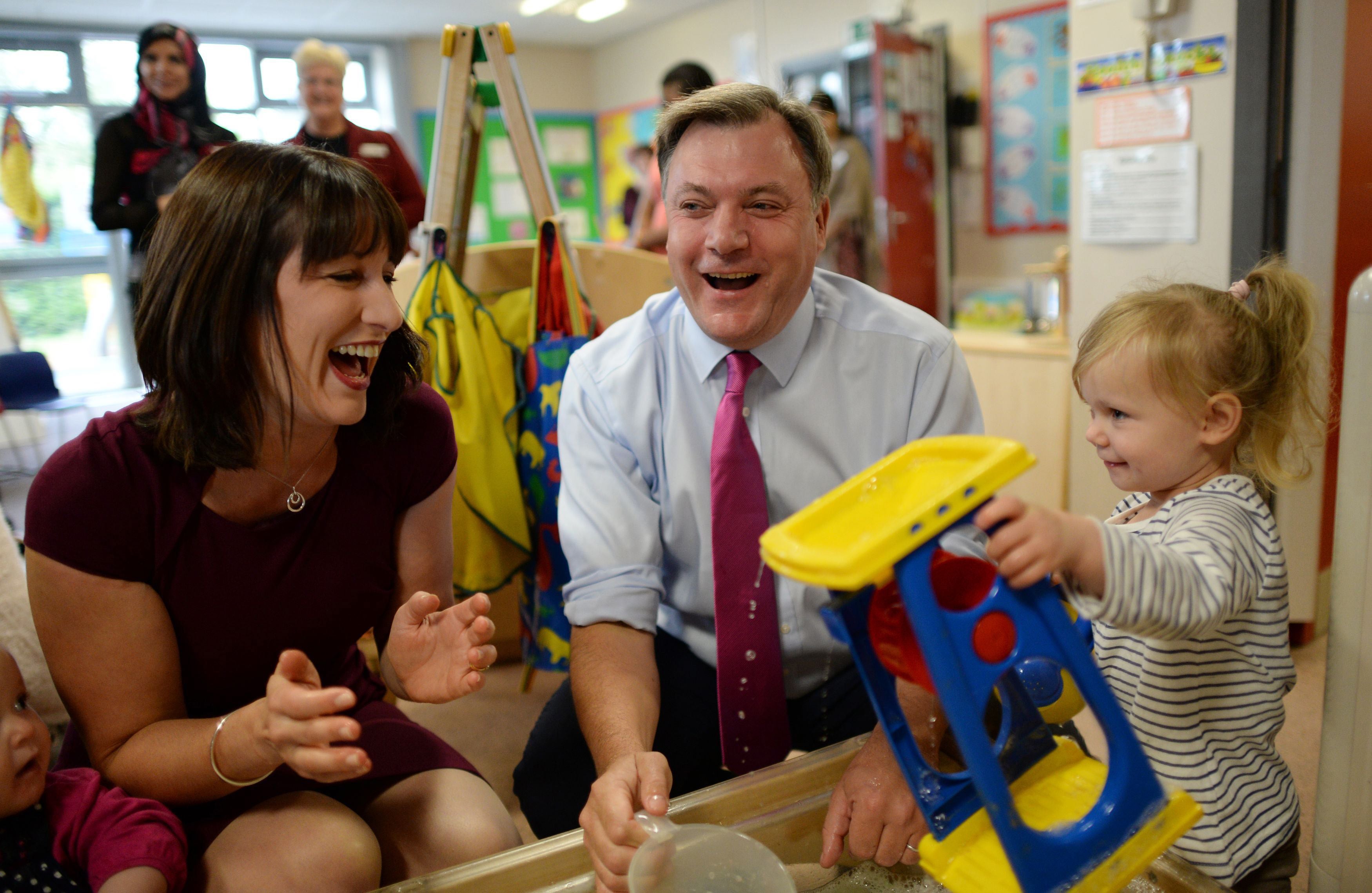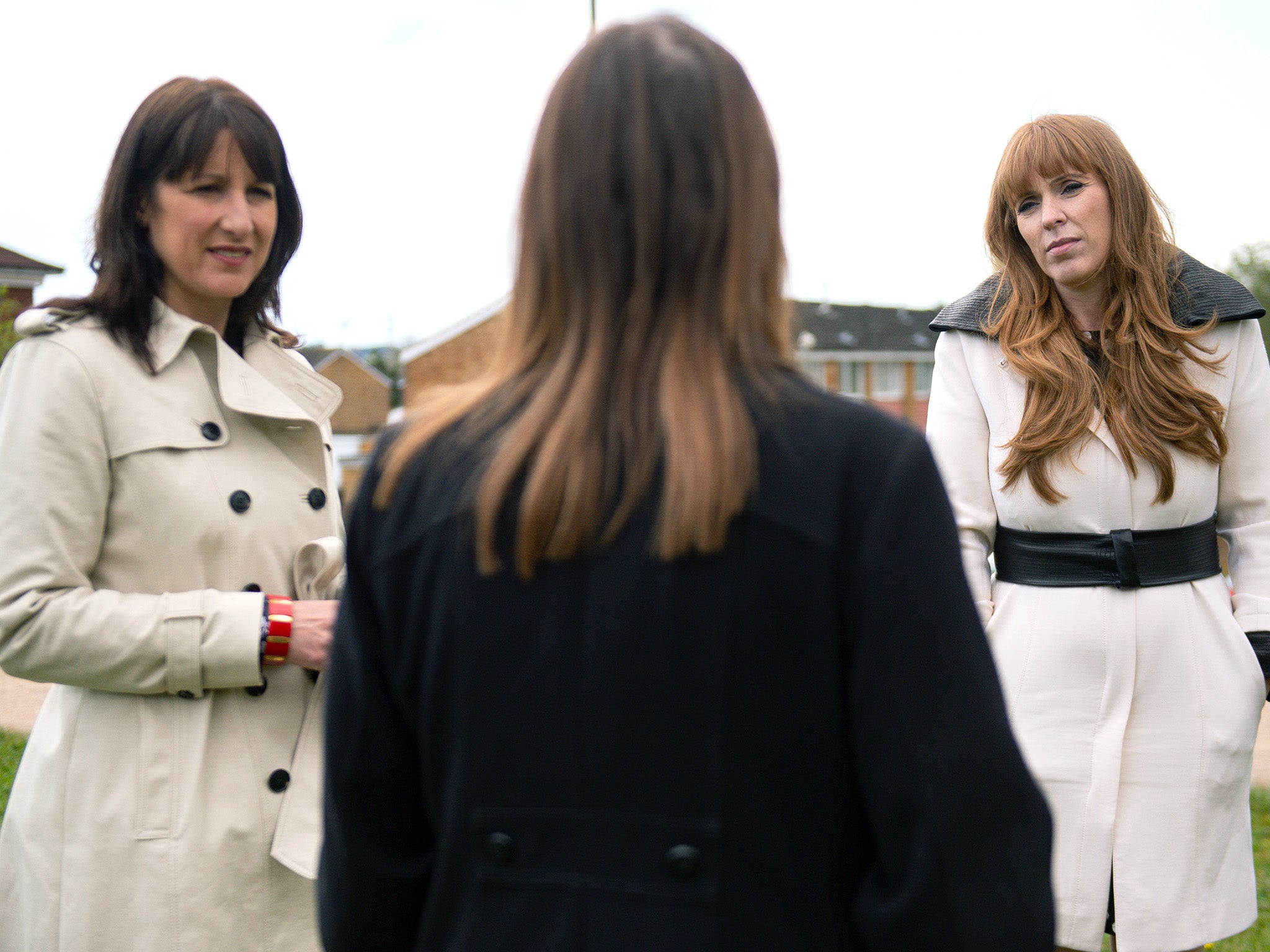The woman with the hardest job in Westminster?
Keir Starmer’s reshuffle has given Rachel Reeves perhaps the most difficult task of them all – challenging the plans of a Tory chancellor who is spending public money like none before him, writes Sean O’Grady


The new shadow chancellor, Rachel Reeves, has enjoyed rapid promotion after spending a leisurely, thoughtful few years on the back benches during the Corbyn regime. As one of those who can be easily identified as “centrist” – or new-fascistic, in Corbynite demonology – she can hardly have been surprised to find herself marginalised. Given that, during her time in Ed Miliband’s shadow cabinet, she’d made the case for deficit reduction, rejected the notion that Labour was a pressure group for the poor, and promised she’d be tougher than the Tories in controlling welfare spending, she can hardly be surprised that she went out of fashion so quickly.
As she sees it now, she was making the right point in the wrong way: “One of the things that I said was, ‘We’re the party of working people, the clue is in the name.’ And then I got criticised: ‘Well, what about the unemployed and people who can’t work?’ Well, of course, the Labour Party is the party of them: people who are out of work, looking for work; people who can’t work because of illness or disability or caring responsibilities. They’re all part of that working class.
“I was trying to make the point, however badly, that spending more on benefits wasn’t always a sign of success. And actually the benefits bill goes up when society fails. Maybe I didn’t always say it right. But that was the point I was trying to make.” It was to cost her.

Cast your mind back to 2016 – the year of Trump, and of Leicester City winning the league – and you may recall the strangeness of it all, and how much of an earthquake had been set off by Jeremy Corbyn winning the Labour leadership election so decisively. Still, it hurt. Reeves had nominated Andy Burnham, interestingly but to no avail. He, and she, lost out. Reeves recently told The Spectator that she had found this long period of relative isolation from the centre of events “difficult”, which is a political euphemism for unbearable. She resented being called a “Red Tory” and being told to clear off and join the other lot by people who’d been in her party for 10 minutes (she had joined when she was 16, in 1996, no doubt dazzled by the sun king Tony Blair).
Most of all, though, it came as a shock to her because up to that point her progress through life had seemed rapid and seemingly irrepressible. Fortunately, she was pregnant with her second child when Labour lost its second election in a row, and was semi-detached from the ructions. When she returned to the Commons she busied herself with select committees and writing, including a book about some unfairly forgotten female politicians. Among her heroes are Alice Bacon, Jennie Lee and Beatrice Webb.
The shadow chancellor has been in parliament for 11 years, all of that time in opposition. If the party flops again, for a remarkable fifth time, in 2023 or 2024, it’ll be almost the 2030s before it has another crack at governing Britain for the many not the few. By that time Reeves, like so many of her generation, will be well past her peak, passing from ambitious newbie to elder stateswoman without ever having opened a red box or done anything as a real-life minister. It is galling to think that the likes of Chris Grayling or Jo Swinson have spent more time as ministers and made more of a mark on the nation than almost anyone in the entire shadow cabinet.
It is a sobering thing for someone who has always been such a high-flyer. She has always been bright and studious, except for a brief period of rebelliousness in her early school years. Both her parents were primary school teachers, her father rising to become a headmaster and her mother teaching children with special needs. During the time when little Rachel attended the school where her mother taught, she refused to call her “Mrs Reeves” and was inclined to play up. Reeves doesn’t lack confidence these days either, it must be said, and she has no false modesty about her many achievements. Inspired by a brilliant teacher (“brilliant” is a very Reeves word), Reeves took up chess at an early age, playing from the age of seven and developing such a talent that she went on to play for school and county, becoming a champion by 14, and is still involved in a charity to promote the game in state schools (having always attended state schools herself). One spur to her winning a game was when a boy told her opponent, another boy, how easy his game was because he was playing a girl.
Reeves grew up in Lewisham and Bromley, in southeast London. Her parents, Sally and Graham Reeves, were professional and hardly poor, but neither was the family especially privileged. Her maternal grandfather was a builder, her other grandad and his wife had worked in a shoe factory in Kettering, and neither of her parents had been to university. They divorced when she was about eight years old, but the split was amicable. After a time at Cator Park secondary school in Bromley, Reeves was one of the few in her school to go on to Oxbridge, to study philosophy, politics and economics. She picked New College, Oxford, simply because a girl a few years older than her who had blazed the trail had chosen to go there, and she thought she’d have more chance if she did the same.
She chose PPE not just because it was the kind of thing most precocious, politically minded adolescents might aspire to, but also because her passion for maths had run its course and she wanted to study more widely, in order to make a bit more of a difference to the world around her – again, one of the themes of her career. Besides, much of her research and subsequent work involved highly mathematical econometric modelling, so that was all right. She did well and was offered jobs by Goldman Sachs and the Bank of England at the end of her degree. “I chose to be poor,” she reflected later – but not unhappy. Next was working at the British embassy in Washington DC as an economist, thoroughly enjoying the expat lifestyle, before completing her masters degree in economics at the LSE, sponsored by the Bank, on her return.
Soon enough, though, she wanted to turn her “hobby” of politics into a job, and she left London to take a job with HBOS in Leeds, perhaps with an eye to a parliamentary seat. She fought her “home” seat of Bromley and Chislehurst, one of the safest Tory seats, in the 2005 general election (the last one Labour won, by the way), and in a by-election in 2006. She lost, but that didn’t stop her from winning the nomination in the safe Labour constituency of Leeds West in 2007, 20 years after her father had started her political education by pointing to Neil Kinnock on the news and telling her, “That’s who we vote for.” She has been an assiduous constituency member since 2010.

There was no stopping her, for a time. After only six months as a new girl she was fast-tracked again, and given a succession of shadow ministerial and cabinet posts by Ed Miliband, whose leadership campaign she had supported. It was while doing these jobs that she grew in stature as a parliamentary performer. Although, frankly, she can be a bit dull to listen to, with a voice that sounds like an English version of Marge Simpson. One Newsnight editor accidentally called her “boring, snoring Rachel Reeves” on Twitter.
But there’s nothing wrong with her technique at the despatch box. She’d had no interest in the Oxford Union during her time at university, because she couldn’t see the point in debating for the sake of it, arguing a case you might not believe in or even understand (unlike, let’s say, former union president Boris Johnson). It doesn’t seem to have done her any harm. On her debut as shadow chancellor she deftly got herself out of trouble after a Tory backbencher challenged her on “sleaze”. She carelessly threw in an insult – “I haven’t lined my own pockets” – and when he came back at her, involving the deputy speaker, Reeves managed to swerve past the silly mistake she’d made with a smile and a remark that she’d let the record speak for itself.
Assiduously churning out the speeches and the policy statements, Reeves ploughed through her time as shadow business and shadow work and pensions secretary during the Con-Lib coalition competently enough, occasionally upsetting her own side, but never setting the Commons on fire (admittedly the briefs didn’t help). Like many, she was surprised that David Cameron managed to win in 2015 (albeit with a narrow overall majority), but unlike many at her senior level in the party, she was actually shattered by the result, describing her reaction as “grief”. She had believed in all sincerity – bless her – that she was certain shortly to be sitting around the cabinet table with prime minister Ed Miliband. She was under the illusion that a succession of jobs in the shadow cabinet were she sort of upward escalator to power; in retrospect she acknowledges that Ed was never going to be elected as prime minister. Now it is she who is senior to her old boss, and it is he who is having to make the best of the business portfolio.
Reeves, without necessarily trying that hard, has come from nowhere to become extremely well connected. Her sister, Ellie, is now a Labour MP and shadow solicitor general, and is married to John Cryer, himself the son of two more Labour MPs – the late legendary left-winger Bob Cryer and his wife Ann. Rachel Reeves’s husband, Nicholas Joicey, is director general for finance at the Department for Work and Pensions and a former speechwriter for Gordon Brown. She met him during her time in Washington.
Her first boss at the Bank of England was another economist by the name of Andrew Bailey, and she was at Oxford around the same time as her predecessor as shadow chancellor, Anneliese Dodds, as well as fellow Labour MPs Rushanara Ali and Emma Reynolds. Mind you, none of that prevented Reeves from going on manoeuvres in the latter period of Dodds’s unhappy time as shadow chancellor, churning out press releases that, arguably, trespassed over the then shadow chancellor’s brief. To be fair, though, she was performing well against Michael Gove and his faltering attempts to make sense of Brexit and defend cronyism.

Like Keir Starmer, then, who obviously does rate this highly intelligent, quick-witted figure, Reeves has southern, solidly middle-class (or “ordinary”) roots, but has used her considerable talents to become a member of what is often derided as the metropolitan elite. Her seat in Leeds is hardly “red wall”, being part of one of the great conurbations that has actually stuck faithfully with Labour during its recent declines. She neither sounds nor acts “northern” because she doesn’t need to. For her, arriving in parliament after the Blair-Brown period, such cosmetics don’t seem to matter as much as getting the politics right. She has learned that the economic policy detail that much of her life has been concerned with isn’t as interesting to the electorate as she used to think.
She recently set out to The Spectator how she wants to do her new job (having apparently no reluctance to court the right wing mainstream media), and sounds a note of caution about Starmer’s rapid policy review: “Thinking about how we build that broad-based coalition that can get us back in... that means us understanding the condition of the country, it means us understanding the people and the communities we aspire to represent, and it means having some bold vision with policies – but if we think we can jump straight to those policy conclusions, I think that would be arrogance of the highest order.”
Over the decades, Labour has had many shadow chancellors, but only three went on to become real chancellors with the power to set tax rates and spend public money – James Callaghan, Denis Healey and Gordon Brown. Most are consigned to history – or, in the case of Ed Balls, light entertainment. Opposition parties often find it hard to win the confidence of voters on the economy, but it is striking that the last time Labour took power from the Conservatives, in 1997, it did so with a message of “prudence” and by sticking to the then Tory chancellor Kenneth Clarke’s overall spending plans for its first few years in power.
You wonder whether the ultra-centrist Reeves might choose to do something similar now, and whether her party would let her. It was, after all, rumoured that Starmer wanted to appoint her shadow chancellor last year, and that the idea was vetoed by Angela Rayner, who has recently repeated her scepticism about “magnolia” politics. Nor will everyone in the shadow cabinet and the wider party appreciate Reeves’s revival of Brexit as a live political issue while it continues to reverberate in its economic effects.
Being an ex-Blairite, ex-Burnhamite and ex-Milibandite, as a centrist shadow chancellor Reeves will find herself with the greatest responsibility of her life, but will be attacked and stymied by the left as much as by her Tory opponents and the media. She seems up for the fight, and is likely to deploy some of the same tactics she used to become such a whizz at chess. Her favourite chess move is the “Sicilian dragon defence”, which sounds ideal for what she’ll be going through for the next few years. It would make a change to see Labour checkmate Boris Johnson.
Join our commenting forum
Join thought-provoking conversations, follow other Independent readers and see their replies
Comments